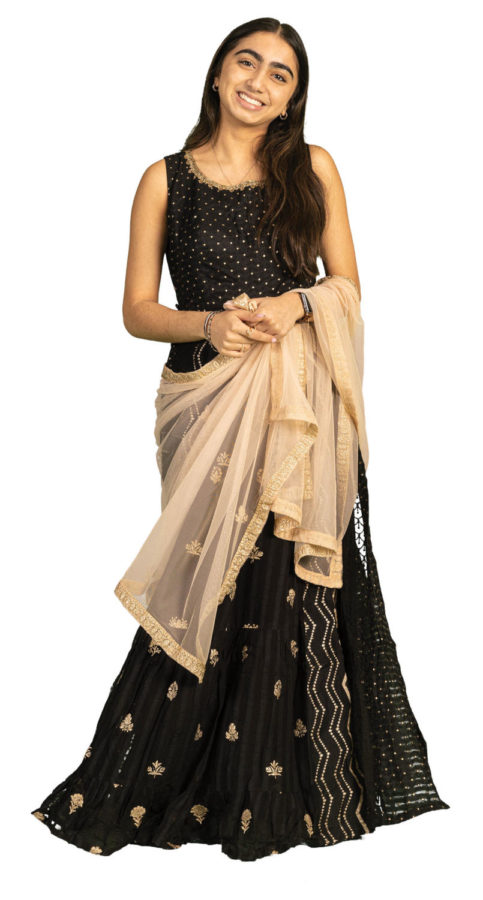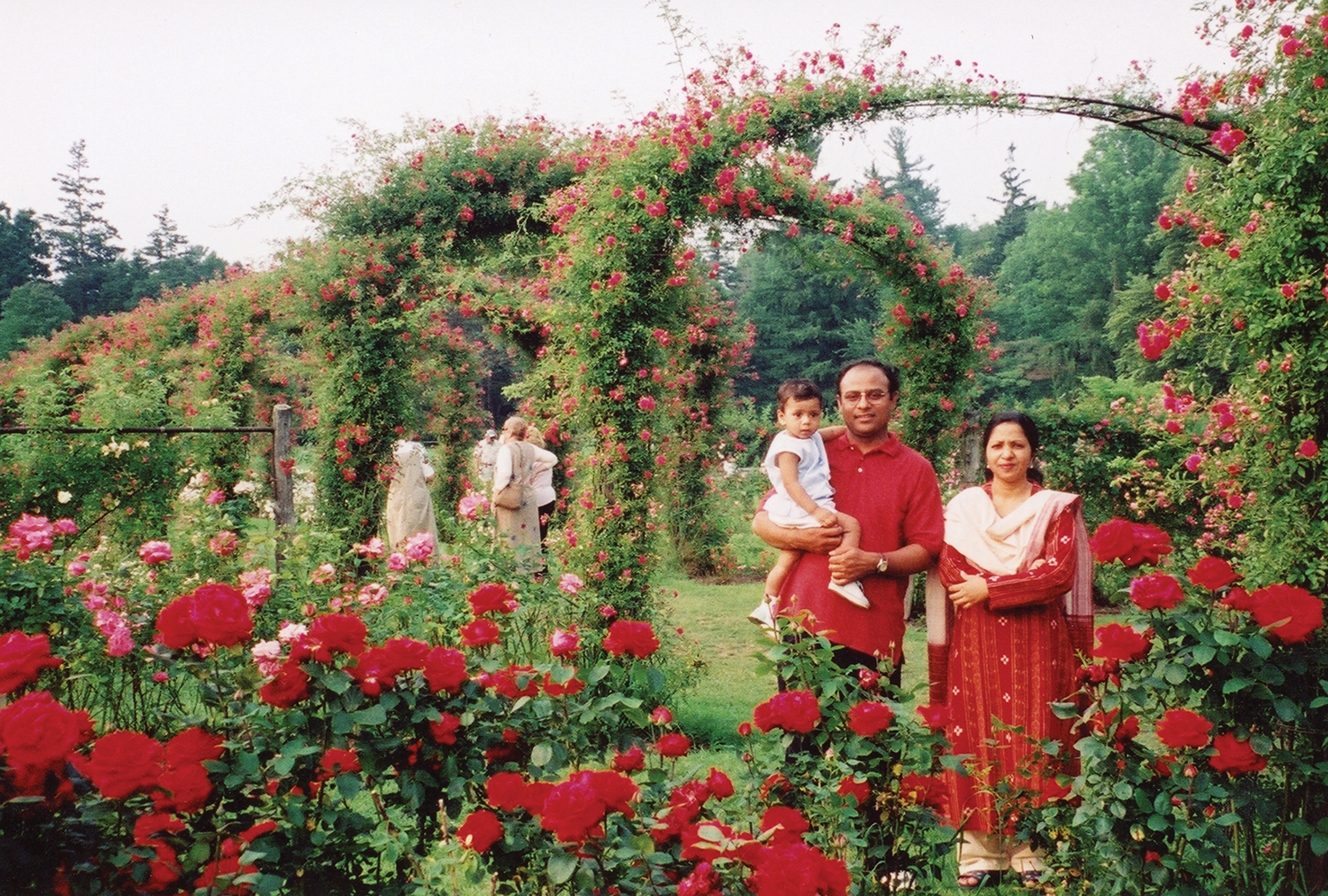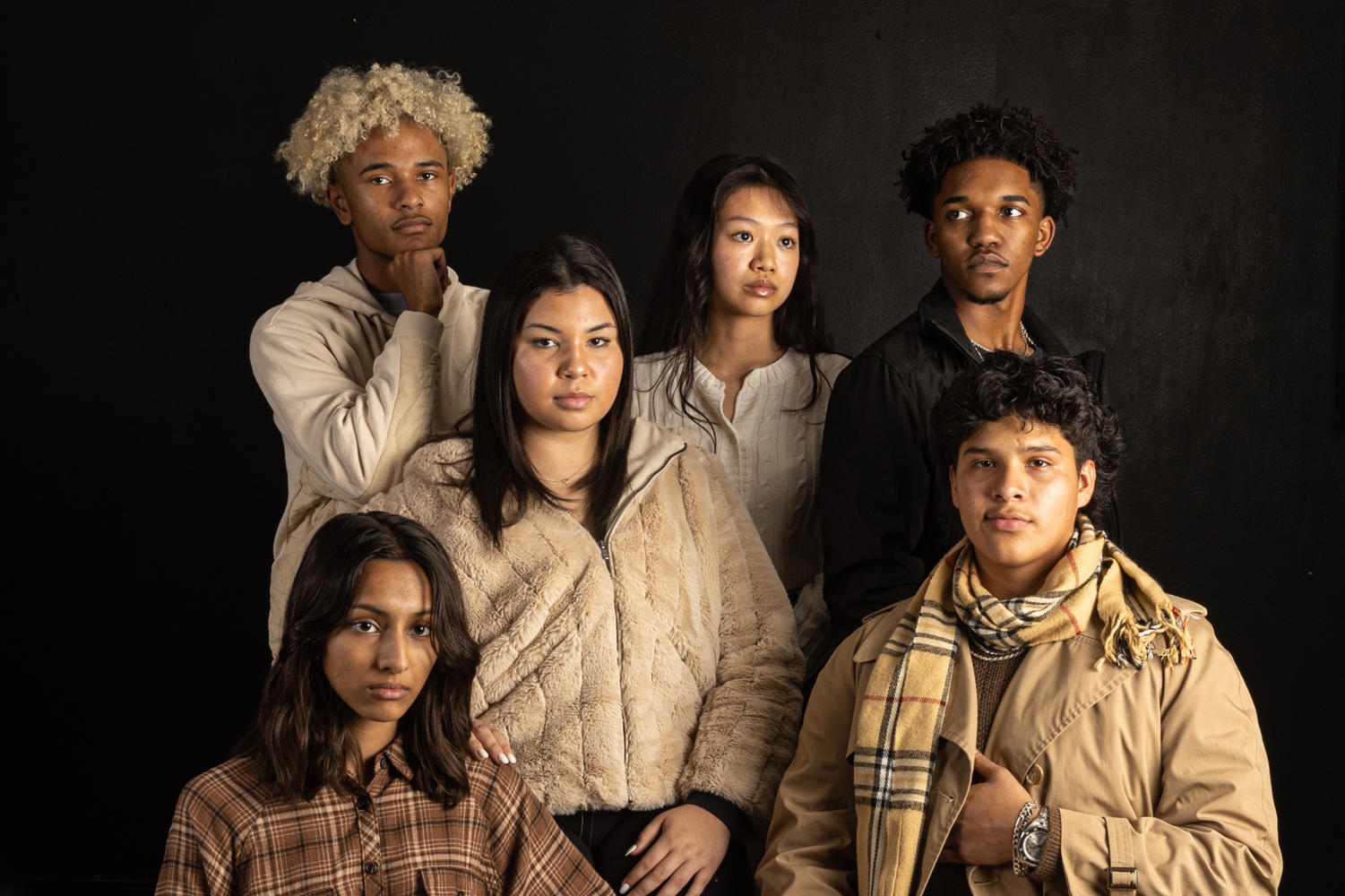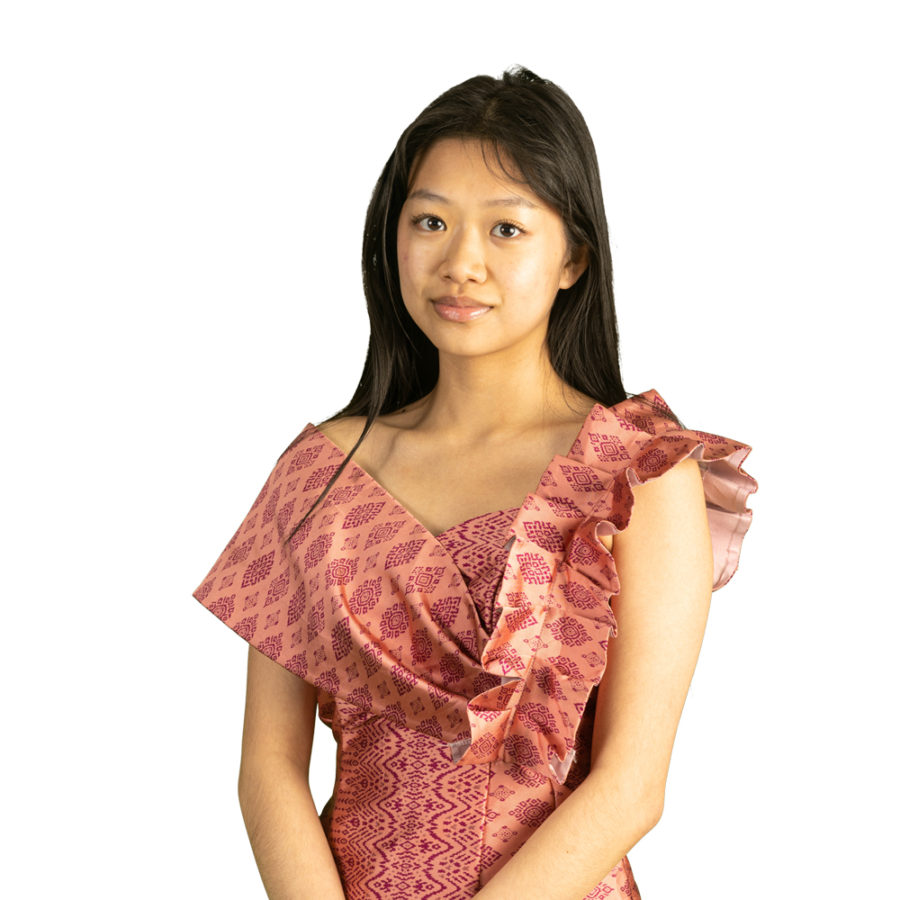Rich in culture
Embracing the different cultures and traditions found within Texas High
February 1, 2023
Unity is power
Texas High showcases a beautiful array of diversity. Students from all different backgrounds, cultures, ethnicities and traditions all smoothly blend into the student body. THS has created its own melting pot, if you will.
However, how often do these backgrounds get exclaimed proudly? How often do we shed light on the variety of cultures this school has to offer? How often do we take time to embrace ethnicities and share traditions?
Unfortunately, the answer to these questions is rare. This rarity was a call to action for math teacher Alejandra Hernandez and an ambitious group of Texas High students in 2015 after they were inspired by a Latino group started at the college level.
“I took a small group of students to the Summer Institute at Henderson State University,” Mrs. Hernandez said. “They were looking through the yearbooks and saw the club picture of the League of Latinos. I told them how I started that club several years ago to bring the Latinos on campus together and be a support system as first generation college students.”
This motivating field trip was not forgotten when summer came to an end, and the kids returned to school.
“[The students] wanted to do the same at Texas High,” Mrs. Hernandez said. “After that summer, the same group of students came to my room on the first day of school and asked what they needed to do to get it started.”
The founders of the club set up dates for meetings and spread the word that the Multicultural Club would proudly be the newest addition to Texas High. They managed to draw in over 50 interested students to the first meeting in Mrs. Hernandez’s room.
“My freshman year of high school, I noticed there were so many activities such as, sports, STUCO and other clubs. A lot of people were really not a big part of them either because of the lack of knowledge about it, language barrier or because they were too shy to join,” founding member Catalina Resendiz said. “By opening this club, they would get a chance to spend more time together, learn more English, travel at the end of the year and also participate in activities.”
Resendiz and her peers’ perseverance paid off to create a better environment for students feeling unrepresented in the student body both then and now.
“The Multicultural Club is for anyone and everyone to join,” Resendiz said. “I would tell the current members to enjoy this club and to thank Mrs. Hernandez for the support she has put in this. I can say she has been very dedicated to this club. I would also tell them to bring in more ideas, more foods and more traditions for everyone because as time goes, the club gets bigger and better.”
Though Resendiz no longer walks in Texas High’s halls, she left a legacy for many more generations to explore and indulge in.
“Multicultural Club has helped me step out of my comfort zone and be a more open person,” senior Maria Silva said. “I decided to join Multicultural Club last year because I wanted to share my culture with others since there are not many Venezuelans in the school.”
Silva took her dedication to the club to the next level by becoming an officer her senior year.
“This year, I was very lucky to be chosen as one of the officers by first being nominated, and then, getting the rest of the members to vote for me as their historian,” Silva said. “I decided to be an officer because I wanted to contribute ideas to the club and share what we get to experience. As officers, we get to meet once a month to discuss upcoming events for the club and bring ideas to the table on how we can spread the different cultures here at T-High.”
The hard work that the officers put in does not go to waste. It has made the Multicultural Club a welcoming attraction to incoming freshmen.
“Being part of this club has helped me become more sociable and learn more about other countries,” freshmen Joselin Martinez-Lopez said. “It allows me to connect with my people and share beautiful experiences.”
Simularily, upperclassmen feel the same acceptance and friendliness as those new to high school do. Senior Said Hernandez enjoys even the little things when getting to spend time with other club members.
“My favorite thing is when we do club events, whether it’s preparing food for our fundraisers or enjoying the club parties,” Hernandez said. “During these times, everyone can be themselves and enjoy the moment not having to worry about anything else.”
Since its origin in 2015, Multicultural Club’s mission was to make a home away from home for Texas High students- they have definitely been successful. Multicultural Club does not exclude anyone for background, ethnicity, race, language or culture.
“Everyone is more than welcome to join,” Hernandez said. “Don’t feel discluded just because you’re not a majority. There’s a place for everyone.”
Senior embraces her Indian culture
Q&A with Trisha Patel

How has growing up in America affected your perception of your culture?
I would honestly say that it hasn’t affected me much. My parents always made it a priority to show me and my brother what our culture and traditions looked like, and we also always participated in them. If anything, being in America and having the resources to experience our culture has made a very large impact on my life.
What are some things you do to keep your culture alive?
Being in a small town can kind of be hard sometimes, but we have a Hindu church in Nash and they always host all celebrations and events. Having the church near us is beneficial in keeping our culture alive. It’s called Hindu Temple Texarkana.
How can you pass down your culture to the next generation?
I personally want to live in a bigger town as I get older, that will give me access to larger foundations and organizations that celebrate my culture and the future generations will have more people around them to use as role models when it comes to participating in traditions.
What’s the biggest misconception people have about South Asian culture?
I think most people don’t realize the richness and depth of the culture, everything that is done is there for a specific reason. The richness stems from being the oldest religion around. It has adapted and has an ocean of other faiths that have poured in their values. The scriptures are in Sanskrit, the oldest language. Some other things would also be the classical dances in Hinduism and our music.
What is your favorite cultural tradition?
My absolute favorite tradition from my culture is Garba. You get dressed in these gorgeous dresses, and you go dancing. You could say it’s like the Indian version of line dancing. This tradition is a celebration of the goddess Durga. She’s the goddess of strength, protection, destruction and war.
Has there ever been a time where you were embarrassed of your culture?
I don’t think I can ever remember a time when I was embarrassed by [my culture]. I have always seen my culture as beautiful and it’s a part of who I am.
What do you do in your church?
We host a service every Sunday morning. It’s open everyday for anyone who wishes to go pray. Lunch is also available every Sunday for everyone who comes to the service. We have Sunday school for all the kids, we call that Balvihar. In this we are taught using the basic ideas of the Gita. Which is the Hindu scriptures. The lessons are easy to understand and useful in your everyday life. It differs in a couple of ways from a Christian church. We sit on the floor during the service and shoes are not allowed in the prayer rooms. We do all of this as a sign of respect. We don’t wear shoes because you are essentially walking into God’s house, and if your shoes are dirty you don’t wear them in someone’s house. We sit on the floor as another sign of respect, and because it has been proven that being on the ground can help your mind relax.
Happy to be across the sea
Georgian exchange student details his American experience so far
Photo by Macy Maynard
Junior Raul Azimov is a foreign exchange student at Texas High. He’s traveled from Georgia to see what life in the US has to offer for a year.
In the modern era, the ability to look outside your own bubble could be argued to be a rarity. Often, individuals are stuck around social groups, ideologies and even social media that exclusively appeal to them and their worldview. However, although this may be a comfortable thing to do, it is important to realize that the world is far bigger than you can imagine.
The country of Georgia is an excellent example of this phenomenon. To most Americans, the mention of Georgia brings images of peaches and the bustling city of Atlanta to mind, yet halfway across the globe is a country filled with unique cultures and citizens. Here, we would find the home of one of the new exchange students on campus: junior Raul Azimov.
“[Georgia] is a small, kind of isolated, really mountainous, beautiful place,” Azimov said. “It’s mostly mountains, so when I first got here, it was kind of uncomfortable when I looked at the surroundings, and I didn’t see any mountains. You could say I had a phobia of open space for a few days.”
To someone with such a different home country, America’s landscape and society was seen as such a daunting place. Despite this, the differences one might really notice are things Americans did not even consider.
“I saw something weird about this city after a week of staying here. I noticed that there aren’t any sidewalks,” Azimov said. “I was like, ‘wait a minute, where are the sidewalks? How am I supposed to walk here?’ Usually, the answer is just to use a car.”
A common pattern for exchange students has been truly missing their homes. However, this thought has not stopped Azimov from enjoying and exploring into American culture.
“I know that a lot of people miss their country. I do too, but not to a great extent,” Azimov said. “I know that I’m going to go back there. I’m glad, but I still don’t want to go back because I have so much stuff to do here. I miss it, but not too much.”
America has been portrayed in foreign media in a plethora of ways, but there is consistency in certain stereotypes. Regardless, there are very many exceptions to these rules.
“Most of the stereotypes come from Hollywood and movies like when they show us American schools, where students are kind of separated into small groups like jocks, nerds, popular kids and stuff like that,” Azimov said. “I don’t see that a lot here; it’s more diverse. [the stereotypes] don’t really fit.”
Akin to stereotypes are the expectations held by each member of the exchange program of how they plan their experience to go. With no direct control on where you are placed, the journey these students can go on is far from their imaginations.
“You don’t choose where you will end up. They do, so I actually wanted to end up somewhere north, but I ended up in Texas; I’m a proud Texan now.”
The prospect of taking in a teenager from halfway across the globe is almost unfathomable in nature. In spite of this, there are lots of generous families around Texarkana that are up to the task.
“My host mom is the best person I have ever met,” Azimov said. “If there were more people like her in the world, the earth would be a much better place.”

Zulfia Islam (mom), Md Kalam (dad), and Nabil Kalam (brother) stand in a rose garden in Conn. a year after immigrating to the United States. (submitted photo)
Motivation for immigration
People always just see me as someone who tries hard in school to get good grades. But they never ask why I try so hard. Even though I want academic validation, and I want to get into a good college, those reasons are never the main motivation.
My parents immigrated to the United States in 2001 from Bangladesh, a small, overlooked country to the right of India. They moved long before I was born, but they did it so their kids could live a better life. They left everyone and everything behind to build a new life with better oppurtunities.
Even before they moved, they went through a lot of hardships. My dad grew up in a small, impoverished village. His family’s economic situation was not good, so it was tough to provide a good education. He went to school, but it wasn’t in the best condition.
He ended up being on his own in fourth grade. He would sleep on a bench inside of his school because the journey from his house to the school was too long. He would visit his parents a few times a week, but he never stayed.
Fast forward a few years, at the age of 16, my dad decided to get a higher education, so he moved to the city by himself with little money in his pockets. He took the national college entrance exam with no expectations, but he ended up scoring really high. Even with so little, my dad was able to get into the top ranked college in the country.
But there was still one problem. Since he didn’t have any money, he couldn’t afford to live in the dorms. He didn’t know anyone in the city, so he was basically homeless for a few months. He eventually found a family to take him in after he put an ad in the newspaper offering tutoring services in exchange for shelter. The family that took him in was my mom’s relative, and both of their lives changed after that.
My mom was the eldest daughter in the family. During that time, it was expected for the women to get married and stay at home to take care of the kids and house. But despite that, my mom got a master’s degree at the top ranked university in Bangladesh and hoped to be a professor.
Unfortunately, my parents immigrated before my mom was able to start her career, and because of the language barrier, she was unable to get a job in the field she wanted over here. She sacrificed her dream career for her kids to live a better life.
Even though life in the U.S. was better economically, it was still hard for them to live here because they didn’t have their family with them for support. But over time, they found a small Bengali community in the small town of Storrs, Conn. to lean on.
My parents eventually became used to their new way of life, but there were moments where they felt out of place. They had to miss birth, death and every important event you can think of.
My dad made me realize how fortunate I am to be receiving an education that he wished he had at my age, and my mom helped me realize that it’s important to make something out of my education.
Before, I used to think that my parents put a lot of pressure on me to get good grades, but now I realize that I put pressure on myself to do well because they struggled so much for me to be able to live the way I am.
My parents made something out of nothing to give my brother and I everything, so if they could make such a big sacrifice, why can’t I put in a little extra effort to fulfill their dreams along with mine?



